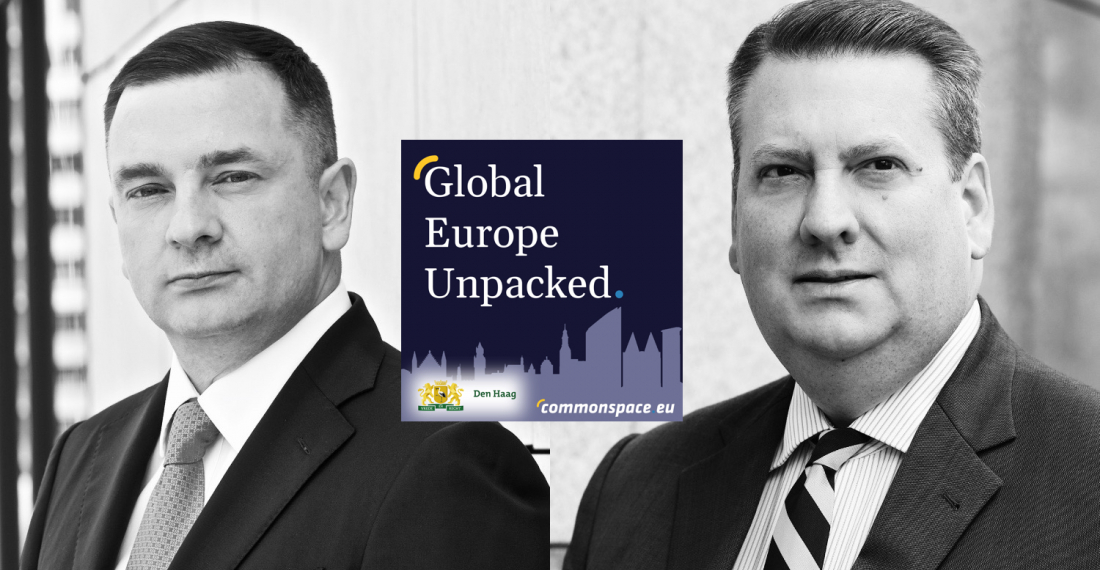“The main issue, which I believe is going to be the game changer for Ukraine in terms of Rule of Law, relates to the oligarchs.”
[The podcast is also available on all of the usual channels, including Apple Podcasts, Spotify and Google Podcasts]
In series two of Global Europe Unpacked, commonspace.eu is collaborating with the City of The Hague to bring you several conversations looking at the future of Europe in the world. This series runs alongside the EU’s largest citizen consultation to date, the Conference on the Future of Europe. Our objective is to spark your interest in some of the important issues under discussion and encourage you to get involved.
30 years ago, Ukraine declared independence following the dissolution of the Soviet Union, and has since declared its ambition to join the Euro-Atlantic community as a full member of NATO and the EU.
However, Ukraine’s Western ambitions have not made life easy for it, and the country has fallen victim to considerable interference by Moscow. Amongst other things, Russia annexed Ukraine’s Crimean Peninsula in 2014 and continues to aggressively support separatist movements in eastern Ukraine. A massive build-up of Russian troops on the Ukrainian border at the end of 2021 now prompts serious concerns about a full-scale Russian invasion.
Despite this, with the Rule of Law considered a key pillar of the European Union, this aspiring member has been making extensive efforts to support and strengthen it through reforms and measures. So, whilst increasing border tensions have captured the attention of the world’s media, what progress is Ukraine making on its ambition to strengthen the rule of law?
In this episode, Will Murray speaks to Brian Mefford, a long-time observer of Ukraine, based in Kiev – about the state of the rule of law in Ukraine and the biggest challenges it faces; how it is affected by Russian interference; and what more could be done by the country’s Western partners to support and promote the rule of law there. Will then speaks to the vice-president of the Ukrainian National Bar Association, Dr Valentyn Gvozdiy, about what his institution does to support the rule of law in Ukraine; his perspective on the issues that Ukraine faces; and what he believes Ukraine can offer the EU when it comes to justice and rule of law issues.
Amongst other things, this episode discusses:
- The state of the rule of law in Ukraine – its past, present, and future;
- The biggest challenges faced by the country on rule of law issues;
- how the rule of law in Ukraine is affected by Russian interference and conflicts in Donbas and Crimea;
- how the EU can better support Ukraine on rule of law issues;
- what the Ukrainian National Bar Association is and how it supports the rule of law in Ukraine; and
- how the EU can learn from Ukraine.
Why not join the conversation? You can access the Conference on the Future of Europe’s digital platform to share your ideas, find events, and to read ideas and event reports, here: www.futureu.europa.eu/






